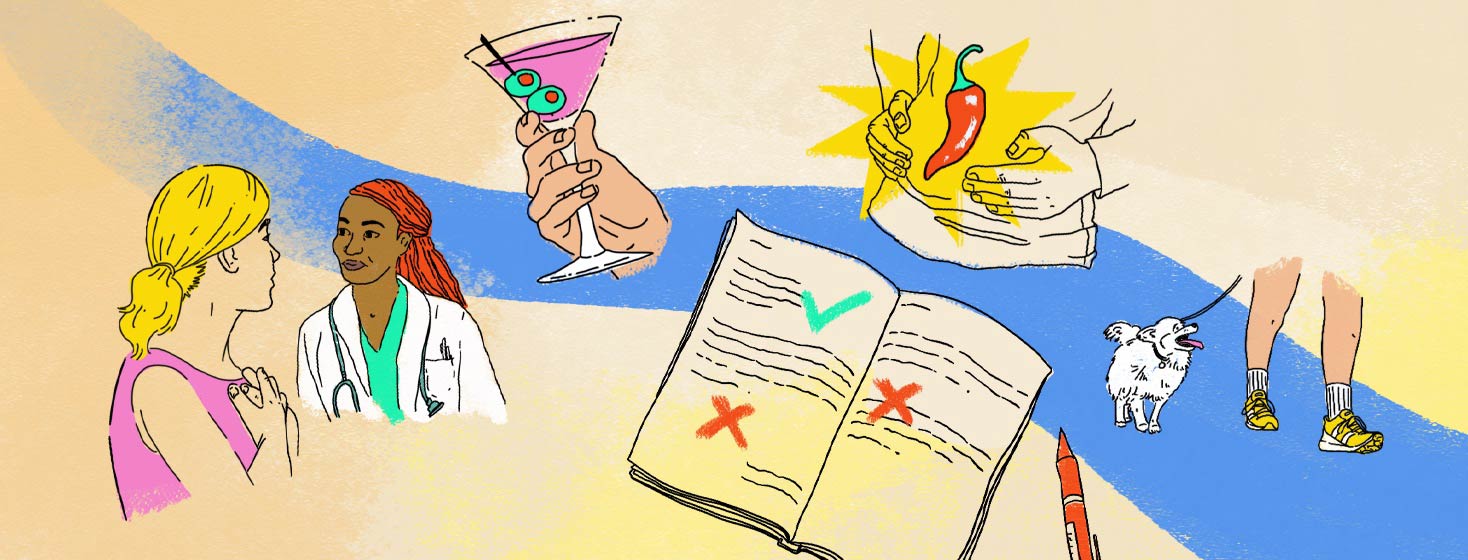Here's My Flare Action Plan
In my experience, ulcerative colitis flares happen at the worst possible moment. In those times, I'm not able to think as clearly or react as well as I'd like, which can make a flare more unpleasant and drawn out.
That's why I find the idea of coming up with a flare action plan so useful. Knowing my plan ahead of time means having to think and stress less in the moment when a flare occurs.
Featured Forum
View all responses1. Reduce stress to reduce symptoms
In creating my flare action plan, I thought about different areas I would need to address. My first priority was addressing my mental/emotional needs. Given that my flares have always occurred in connection with stressors, it's critical that I activate my stress reduction skills at the first sign of a flare.
For me, this means regularly meditating and getting emotional support from loved ones. This also includes doing yoga or making sure I'm staying gently active.
2. Go easy on myself
As great as stress management techniques can be, they can only help so much, though, so a big part of improving my mental wellbeing when experiencing the first sign of a flare is prioritizing.
Over time, I've had to learn that it doesn't make sense to expect as much of myself when I'm in a flare, so at the first sign of a flare I need to reduce stress where possible and be compassionate with myself. This means things that aren't important may not get done as quickly or at all for a while, and that's okay.
3. Limit foods when a UC flare starts
The first sign of a flare also means I need to pay more attention to my body. While I might normally be able to eat junk food, have a couple drinks, or go out for Thai food, my body becomes much more sensitive during a flare.
I need to cut out alcohol, spicy foods, heavily processed food, and excess caffeine to give myself the best chance of feeling better. Though I haven't done it yet, I plan to work on including easy, safe recipes in my flare action plan.
4. Call my GI doctor
If a flare strikes, I also should get in touch with my doctor so that we can come up with a plan. When I'm not feeling well, I sometimes try to "wait it out," but this strategy almost always backfires, so a quick call or message to my healthcare team is a good idea to get my treatment moving.
5. Adjust things at work
Work is probably the trickiest area of my flare action plan. Having a demanding job means that I don't always feel like I can give myself the slack that I need when I'm not feeling well. At the same time, work is often my biggest source of stress, so I know how important it is that I adjust my expectations during a flare.
I'm lucky to have a job where I can work from home if needed. When I'm dealing with a flare, just that simple change can eliminate so much stress. At home, there's no worry about needing to rush to a bathroom down the hall without getting caught in a conversation or having to dress in uncomfortable work clothes when I might be feeling bloated and achy.
I also shouldn't volunteer to take on any new, unnecessary tasks or projects when I notice a flare is starting.
6. Cancel plans if I need to
Finally, as part of my flare action plan, I need to make adjustments in my social life. This means considering ahead of time what kinds of outings and which people are going to make me feel better or worse.
There are those friendships where you can do absolutely nothing, run errands, or just sit and watch television. When I notice a flare coming on, that is the kind of socializing I feel like I can still enjoy.
Going out to dinner will likely put me in an uncomfortable situation since I tend to deal with urgency right after eating. Similarly, I’m not going to be interested in going out for drinks or spending a lot of time walking around downtown where I might not be able to easily access a bathroom.
Part of my flare action plan involves choosing ahead of time how I can respectfully decline invitations and possible alternative activities that I might be able to suggest.
Feeling as prepared as possible with UC or Crohn's
Everyone’s flare plan will look different, of course, but I found it helpful to break my plan down into different categories of my life and think about how I could make changes that would help me to stress less, feel better sooner, and still enjoy life as much as possible.
As much as I hate dealing with flares, feeling prepared and knowing I'm doing all that I can to make my situation better goes a long way to increasing my sense of control.


Join the conversation